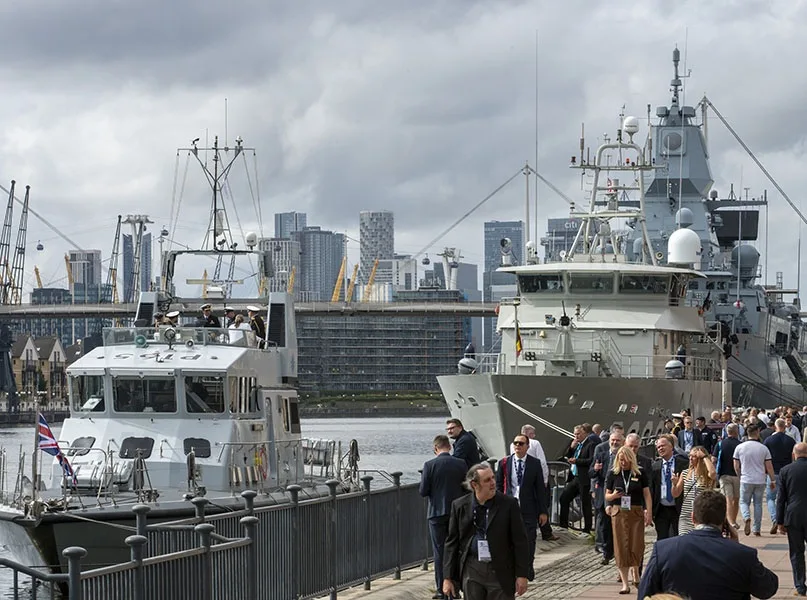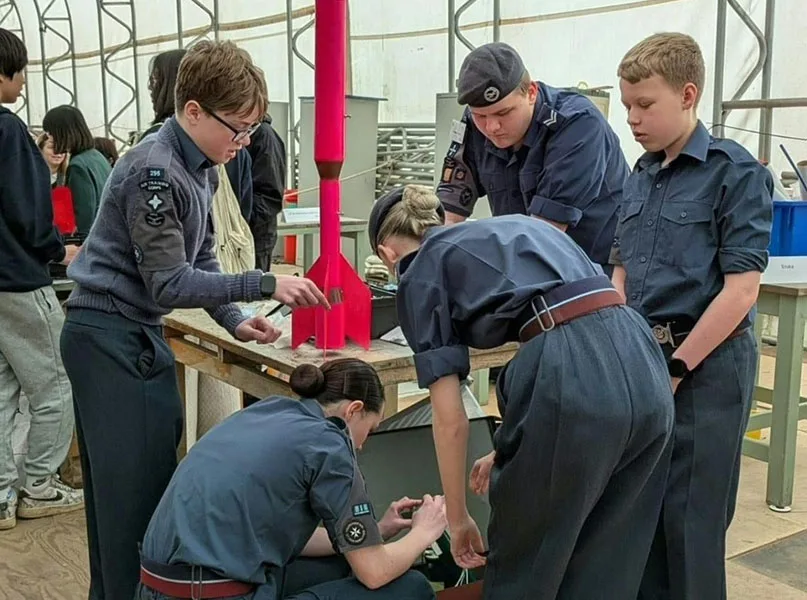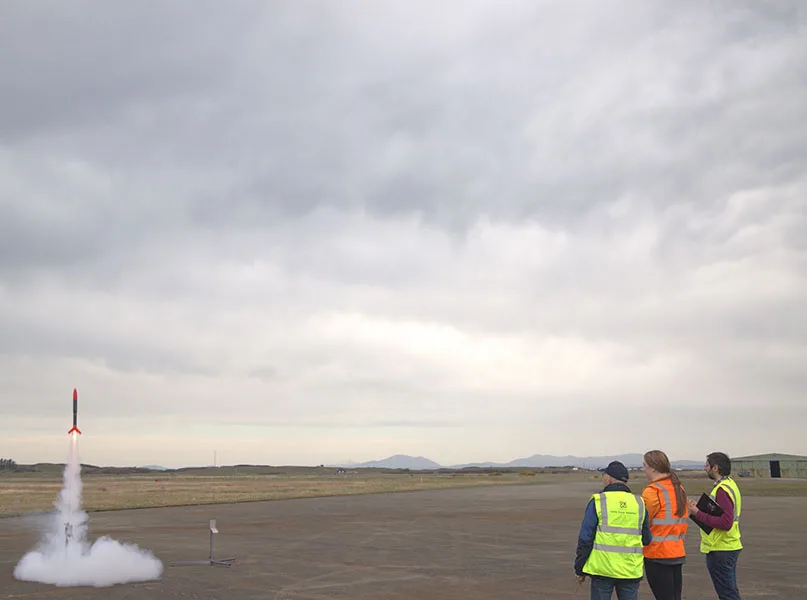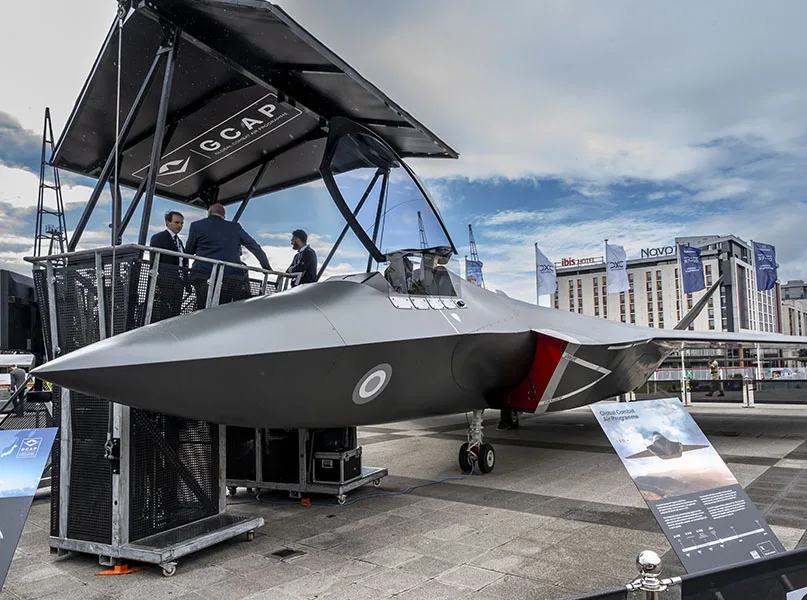We explore the pivotal roles of the UK aerospace, defence, security, and space sectors in driving economic growth, innovation, and national security. These industries stand at the forefront of advancing technology and strategic capabilities, all whilst navigating the complexities of global competition and an ever-evolving regulatory landscape.
SPOTLIGHT ON UK AEROSPACE, DEFENCE, SECURITY, AND SPACE
The aerospace, defence, security, and space sectors are not just vital components of the national economy – they are gateways to innovation and progress, shaping the future of global markets.
By fostering collaboration, the UK aims to strengthen its position in these interconnected industries on the international stage.
Contributing to the country’s strategic and technological development, economic prosperity, and vital security needs, these sectors provide opportunities for employment and digital transformation with increased collaboration between industry and government, paving the way for a bold and thriving future.
However, these industries also face challenges, including global competition, access to funding, shifting geopolitical priorities, as well as regulatory and procurement barriers that are limiting the sectors’ ability to scale up and deliver.
Addressing these challenges is crucial for maintaining the UK’s competitive edge and ensuring continued growth and development.
Aerospace, defence, security, and space are the industrial bedrock of the UK, with their value to the economy continually soaring.
With the second-largest aerospace industry in the world after the US, the UK is recognised for its innovation and high-quality manufacturing.
Key areas include the design and production of commercial and military aircraft, spacecraft, and related systems, with a focus on engineering and R&D.
The UK defence industry is equally important as it ensures national security and maintains international stability. It covers a wide range of areas, including land, naval, and air defence systems, and offers a diverse array of solutions ranging from fighter jets to cybersecurity. As a result, the government heavily invests in advanced technologies and weapon systems to enhance military capabilities.
The sector is also an essential player in NATO operations, with the UK being one of the largest military spenders in Europe.
The UK has faced serious threats from cyberattacks and information manipulation in recent years, leading to an important decision by the government to raise defence spending.
At the same time, the UK’s security sector is dedicated to protecting national interests through a combination of physical security measures, cybersecurity, and intelligence capabilities. This field has been expanding rapidly due to increasing digital threats and the need for effective identity management systems.
Companies are increasingly developing technologies in surveillance, biometrics, and information security, whilst the UK hosts events like the Security & Policing exhibition, showcasing the latest innovations in the security sector.
Additionally, the UK space industry has grown significantly in recent years, with aspirations to become one of the leading space nations.
The government has also set ambitious goals for launching small satellites and developing a commercial space launch capability.
The UK aerospace, defence, security, and space sectors therefore not only play a crucial role in the nation’s economic framework but also inspire and prepare the next generation of innovators.

Q&A WITH ADS GROUP
We reconnect with Ash Gasson, Director of Membership at ADS Group, as he shares his perspectives on the changes that have occurred in the past year and the significant growth of the trade association, as well as the vital role of innovation in shaping the future of the UK’s aerospace, defence, security, and space industries.
Firstly, what are the most significant developments in the industry since we last spoke, and how have they impacted the group?
Ash Gasson, Director of Membership (AG): We are currently experiencing a significant period of growth right across our industries, which is also backed by some industry challenges, such as the war in Ukraine.
In 2024, the sectors we represent contributed approximately £42.2 billion to the UK economy, representing a 64 percent increase from 2014, which is not an insignificant amount.
From an export perspective, we’re generating around £45.4 billion a year, which again contributes to the UK economy. This figure has increased by 48 percent over the last 10 years; as we closely monitor the challenges in our sectors, all the numbers are on the rise.
A particularly important figure is the number of jobs. Currently, we have approximately 443,000 people employed in the UK across our sectors, which is a staggering amount.
This also includes just over 26,000 apprentices – we’re incredibly proud to support apprenticeship schemes. Employment in all our sectors has increased by approximately 31 percent over the past decade, indicating a healthy growth trend.
We take great pride in our sectors being leaders in innovation, technology, and R&D. The last 12 months have certainly demonstrated strong demand, particularly in advanced manufacturing. To meet this demand, our sectors can rapidly produce equipment or deliver services in times of need.
The war in Ukraine has been quite a significant challenge that our sectors have stepped up to support. Additionally, the announcement and resolution of US tariffs on the UK’s aerospace, defence, security, and space sectors certainty caused a significant period of uncertainty for our members.
The surrounding geopolitical uncertainty has also meant that the companies operating within our sectors must be more resilient in the way they conduct business. We support just over 1,600 member companies, of which around 95 percent are small to medium-sized enterprises (SMEs).

The impact of those challenges can be pretty significant, particularly for SMEs, so we’ve stepped up our support for them.
Recently, there was excellent news that the UK government has finally committed to increasing defence spending to up to 2.5 percent of GDP – that was a very welcome announcement.
We’re starting to see some plans to enable SMEs to raise some much-needed funds, and ADS Group (ADS) is very close to that activity.
We know it’s a particular challenge for our SME members and community. One thing we’re trying to ensure is that our members are informed and enabled to access those funding opportunities where possible.
Aerospace, defence, security, and space are now priority industries for the UK, which is an excellent win for ADS and our members.
There are over 30 percent more people working in our sectors compared to 2014. Albeit slowly, we are seeing pathways and opportunities being created, and we want to continue growing this workforce in the UK.
We can’t ignore the fact that companies need to be more efficient and smarter in the way they operate, however we’re really excited about the investments coming in and enabling our workforces to increase their productivity and meet this unprecedented demand.
From our perspective, whilst we’ve had an incredible 12 months, we’re not complacent – there is always the next challenge or global issue that we must deal with, so ADS is always moving forward.
I like to think that we’re always at the forefront of what’s required of us and our members.

“We take great pride in our sectors being leaders in innovation, technology, and R&D. The last 12 months have certainly demonstrated strong demand, particularly in advanced manufacturing”
Ash Gasson, Director of Membership, ADS Group
Can you share some key objectives that ADS has achieved in the last year? What successes are you most proud of?
AG: When I look at the trends from a membership perspective, we’ve had about 42 percent growth in the last three years.
That’s a strong message indicating trust in ADS from our members, and we are definitely committed to supporting and delivering for these businesses.
By providing our members with business development support and access to supply chain opportunities, we’ve really enhanced our service offering. We have a very strong business development team and are always looking to improve the quality of our 200+ events.
That’s the one priority across our SME community as they want to be able to utilise ADS to access new business development opportunities across our sectors.
To reinforce our position, this year is on track to be our most successful to date. We’ve already welcomed 300 new members this year alone, which is a significant milestone, and will most likely end up with a total of over 1,700 members by December.
Whilst our membership numbers are great, I would stress that we are very much focused on a retention-first policy. All our efforts go into improving our retention rate, which is stable and above the national average – we’re very proud of that.
However, there’s always more to do, and we’ve continually sought to ensure that we’re improving that rate organically, because we want our members to understand the value of being an ADS member.
Returning to the business development element, we held over 120 separate member events last year, including exhibitions, external events that we’re supporting, industry briefings, and 650 Meet the Buyer sessions.
We’re definitely on the right path; everything’s moving in the right direction because we’re not complacent and there’s always more to do.

How have government policies affected the industry, and what changes have you had to make in response?
AG: Most notably, the recent Industrial Strategy, launched a few months ago by the UK government, provides a comprehensive and long-term plan for our sectors.
We are very grateful for that; our policy team worked tirelessly to collect the views of our members and feed them to the government to ensure our industry’s voice is heard.
As part of the Industrial Strategy, a 10-year budget has been allocated for the Aerospace Technology Institute, with which we work very closely. It also includes support for high industrial energy costs, which remains a key focus for our industries and poses a challenge to manage.
Additionally, there is a strong emphasis on upskilling and reskilling our workforce.
We are committed to supporting efforts to upskill and reskill our workforce and implementing interventions to boost access to finance, which has been a persistent issue.

What new initiatives has ADS launched recently, and what goals do you hope to achieve with them?
AG: As ADS is the national trade body for our industries, we represent companies from across the whole of the UK.
We also have regional offices and teams in Northern Ireland and Scotland. Having listened to our members’ views and extracted some feedback from our biennial survey, it was apparent that they wanted ADS to have a greater presence throughout the UK.
ADS has created a new initiative called Engage – a series of activities and events designed to foster growth within the UK’s advanced manufacturing sectors. This takes ADS on the road to deliver core member value engagements across the country.
We’ve covered the southwest, Leeds, and the Midlands, and Manchester and Cardiff are coming up soon as well – we’re really trying to ensure ADS is visible across the entire breadth of the UK. Those events are particularly well attended, and on average, we often see hundreds of our members attend.
Depending on who is hosting us, space may be limited, but the launch of the Engage series has been hugely encouraging, as many members have attended and they seem to greatly appreciate the chance to connect with us.
Security & Policing is a flagship event for ADS, and we are proud to deliver it on behalf of the UK Home Office.
This year, Security & Policing was a record-breaking event, with a 10 percent rise in visitor numbers and 180 international delegations. We felt these figures and our efforts have effectively reinforced the role of ADS within the security and resilience sector, making us a trusted partner in global security collaboration.
The number of exhibitors was also at its highest in the event’s 40-year history, with over 400 attending. We effectively ran out of room in the exhibition hall, so now we are looking at how we can expand that for 2026.
“We have an international focus, so access to global business development support and collaborative opportunities is something we’re very focused on”
Ash Gasson, Director of Membership, ADS Group

Finally, what support or resources does ADS offer to its members to help them adapt to changing industry dynamics?
AG: We work with a large number of organisations, partners, and supporting bodies, operating a collaborative approach to helping our sectors.
Although we believe ADS excels in its work, there are always opportunities for collaboration with our partners. The ultimate goal is to ensure the success of the companies operating in our sectors.
We want to help our members understand the value of being an ADS member, and collaboration is definitely key to that. Whether it’s representing industry or driving innovation forward, I would say we are at the forefront of these activities.
For example, we’re at the heart of the joint industry-government growth partnerships which are shaping our sectors. Our primary role is to represent the interests of our members and encourage their participation in various initiatives that stem from this collaboration.
We are committed to ensuring our presence in government initiatives, acting as the voice of our members whilst also considering a global perspective.
We have an international focus, so access to global business development support and collaborative opportunities is something we’re very focused on.
Currently, we have collaboration agreements with 19 international trade associations similar to ADS. We manage numerous UK pavilions on behalf of the Department for Business and Trade at national and international exhibitions, and I like to believe we act as a convener of members, industry, and government stakeholders.
Therefore, we can create an active network of participants to further support and empower the aerospace, defence, security, and space sectors whilst influencing business overseas.
We’re actively at the table engaging in discussions, the international growth of our organisation is rapidly expanding, and many exciting developments are taking place. As our membership continues to grow, our challenge is to ensure all members are kept informed.
ADS GROUP PARTNERS
































